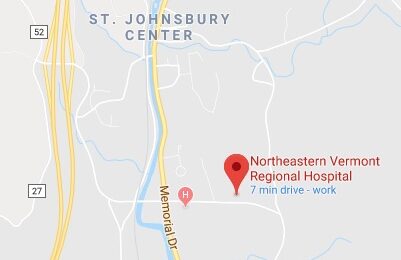Vital Signs: Mental Health Is an Integral Part of our Overall Health
It’s been more than a year since our lives were turned upside down by changes brought on by the COVID-19 virus, but recently we’ve heard some potential good news: that all pandemic-related mandates will be lifted by July 4 if all goes according to Governor Phil Scott’s plan.
One of the biggest impacts of COVID-19 is that more people have experienced poor mental health. Over the course of the pandemic, it’s been reported that COVID-19 has led to increased social isolation, anxiety and depression, resulting in higher demand for mental health services, especially by Vermont youth.
Mental health is the way we think, feel and act, and it influences how we handle the daily stress in our lives, said Patty Collins, Adult Outpatient Director at Northeast Kingdom Human Services (NKHS). NKHS is the Designated Agency that provides mental health programs for adults and children in our region.
An important distinction made by the World Health Organization is that mental health is more than not having a mental disorder or disability. Mental health is a state of wellbeing in which people realize their own abilities, can handle everyday stress, can work productively, and are able to contribute to their community.
“Everybody has personal goals and if you’re feeling like you’re on the road to your goals, then that’s positive mental health,” she said. “It may not mean that you’re happy all day long every day, and that’s normal.”
People who experience poor mental health may find it difficult to function or manage the way they think, feel and act, which can signal that there is a problem.
Sometimes it can be difficult for someone to recognize when they’re experiencing poor mental health, Collins said. She urged people to pay attention to any noticeable changes and to listen to friends and family around them.
“If more than one person you trust is saying they’re concerned there might be an issue, that usually means there is an issue,” Collins said. “The other thing is, if you’re normally able to do things a certain way but that suddenly changes and goes on for a week or more, start thinking about reaching out. It might not be just a low mood, it could be more.”
Poor mental health can impact more than just your mood. It can affect your physical health too.
“Our bodies and our minds are intertwined where psychological stress can often manifest as pain in the form of headaches, stomach aches, other body aches and feeling generally unwell,” said Noreen Shapiro-Berry, Interim Division Director of Behavioral Health at NKHS.
Shapiro-Berry said our minds are wired to protect ourselves from stress and trauma, so when we feel anxious or scared our minds perceive those feelings as threats. When we do experience those feelings, we often have a primal reaction of “flight, fight or freeze,” where we may choose to withdraw, become aggressive, or feel powerless, she said.
Collins added that stress and anxiety can affect your digestion, and conditions such as trauma and post-traumatic stress disorder affect your hormone levels which can put you at risk for other mental health conditions like depression. Depression has been linked to an increased risk for chronic conditions such as heart disease, diabetes, and stroke.
Much like mental health conditions can lead to physical health problems, the opposite is also true. Injuries or chronic conditions that cause pain or limit activity can cause people to have poor mental health, Collins said. For example, someone who experiences a knee injury that prevents them from participating in activities they enjoy may begin to feel anxious, upset or angry. For some people, those feelings continue for a long time and may interfere with their everyday life.
“Physical health and mental health go hand-in-hand,” Collins said.
Shapiro-Berry said our feelings are communicating to our minds, so it’s important to practice excellent self-care and awareness so we can safely respond to our mind’s cues.
There are several ways we can take care of our mental health, and one important way to do that is through our lifestyle choices.
“Get enough sleep, stay active, eat well and stay hydrated, be mindful of the impact substance use may have on your mood,” said Shapiro-Berry. “Enjoy nature, listen to music, practice mindfulness by paying attention to your breath and senses in the moment and stay connected with social supports.”
Although it has been more difficult since the start of the pandemic to do so, Collins said maintaining social connections with family and friends is a key element to maintaining our mental wellbeing. Prolonged social isolation can cause a person to feel lonely, which is associated with higher rates of anxiety and depression as well as poor heart health and brain function. Studies have also been published linking social isolation with higher risk of premature death.
In addition to lifestyle choices, counseling or medication, or a combination of all three, may be helpful in managing your mental health.
If you think you may be experiencing symptoms of poor mental health, call your primary care provider today or call NKHS at (802) 748-3181 (St. Johnsbury) or (802) 334-6744 (Derby). Other resources include:
- VT 211: Dial 2-1-1, or call 1-866-652-4636 (toll free)
- Vermont Support Line: (833) VT-TALKS / (833) 888-2557 or text (833) 888-2557.
- National Suicide Prevention Lifeline: (800) 273-8255.
- Crisis Text line: Text VT to 741741.
Sitemap | Privacy Policy | Site developed by Flek, Inc.
Northeastern Vermont Regional Hospital © 2020

